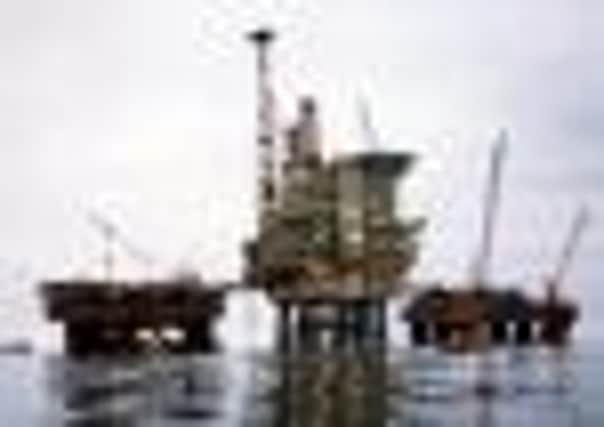North Sea oil fracking could ‘change’ economy


Trap Oil believes the amount of crude trapped inside rocks 14,000 feet below the sea bed could be equal to the total already extracted by conventional rigs.
The firm is just weeks away from approaching the major oil companies in a bid to finance its test well, which could be drilled as early as next year.
Advertisement
Hide AdAdvertisement
Hide AdFracking has transformed the energy industry in North America, allowing the United States to use cheap power from shale gas to drive the reindustrialisation of many areas.
But the controversial technique has led to pollution and minor earthquakes, prompting environmental groups to label Trap Oil’s North Sea plans as “frightening”.
Trap chief executive Mark Groves-Gidney told The Scotsman: “If we can get a commercial flow rate then it could potential have the same impact as shale gas has had in North America.
“It could materially change the UK economy, let alone the North Sea oil and gas industry. That’s a long way down the road, though.”
Groves-Gidney added: “Only about 2.5 per cent of the oil created is retrieved through conventional fields.
“But if you go back into the rock at 14,000 feet you can access about 20 per cent of the oil.”
Extract, a company set up by Trap Oil to apply for licences to explore for such “unconventional oil”, was granted acreage in October by the UK government’s Department of Energy & Climate Change (Decc). Trap Oil then took over Extract in January.
Groves-Gidney added: “We’ve worked very closely with Decc to bring our idea to fruition. The acreage we’ve been granted is close to the giant North Sea fields – like Brent and Ninian – so that, if the test well is a success, we could tie the well to the existing infrastructure, prolonging its life and making extraction commercially viable.”
Advertisement
Hide AdAdvertisement
Hide AdThe UK government has already given energy firm Cuadrilla permission to drill for shale gas in Lancashire, despite fracking having triggered a series of small earthquakes in Blackpool.
But Cuadrilla has delayed its next round of drilling until next year while it prepares environmental impact assessments for its work, one of the conditions put in place by Decc before it gave permission for the extraction.
In last week’s Budget, Chancellor George Osborne created tax breaks to encourage further drilling for shale gas as part of attempts to replace Britain’s ageing coal-fired power stations with slightly cleaner gas-fired versions.
Lang Banks, director of environmental charity WWF Scotland, branded the idea of fracking beneath the North Sea as “frightening”.
“The last thing our planet needs is new method to extract every last drop of oil and gas from beneath our seas,” he said. “The idea that through fracking we might now be able to access oil and gas that was once thought to be inaccessible is a frightening one in climate change terms.”
Banks added: “We already know that the planet cannot afford for all the oil left in the North Sea to be burned.
“We need to see a transition that enables us to harness the engineering skills currently deployed in the oil and gas industry and apply them to supporting a range of cleaner forms of energy production.”